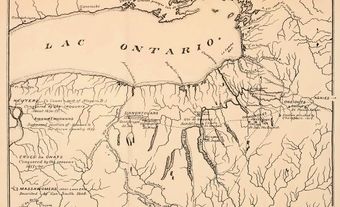Ecumenical Social Action
Ecumenical Social Action by Christian churches in Canada since the late 1960s has been characterized by a reawakening of the Social Gospel passion for justice and a new level of co-operation between Protestants and Roman Catholics. Following the Second Vatican Council (1962-65), Roman Catholic bishops joined mainline (Anglican, Lutheran, Presbyterian and United) and minority (Mennonite and Quaker) protestants in the creation of a number of jointly sponsored social action coalitions. The war against domestic poverty provided an initial focus for ecumenical social action. The 1968 national conference "Christian Conscience and Poverty" led to the creation of the Coalition for Development. This ambitious attempt to co-ordinate the antipoverty struggles of a wide range of organizations did not survive, but the desire to work together remained strong.
International emergencies such as the Biafra and Bangladesh crises of the late 1960s and early 1970s and the growing gap between rich and poor nations heightened the churches' desire to co-ordinate relief and development activities. The Inter-Church Campaign Committee produces shared materials for each denomination's annual appeal for relief and development funds; Ten Days for World Development co-ordinates a development education program; and ICFID (the Inter-Church Fund for International Development) co-ordinates emergency assistance and administers jointly sponsored development projects.
The churches' responses to domestic and developing nation poverty reflected the social gospel conviction that justice, not charity, was required. The need for carefully targeted research was recognized as a starting point for combining compassion for victims with a sophisticated understanding of existing policies. For example, the experience of church observers at UNCTAD (the United Nations Conference on Trade and Development) III (the poor nations' organization) strengthened the conviction that the churches should examine Canada's role as a member of the rich nations' club - the General Agreement on Tariffs and Trade (GATT). The GATT-Fly Project was created to help the churches to be more effective gadflies in criticizing Canada's trade and aid policies. In 1990 the name of this group was changed to the Ecumenical Coalition for Economic Justice.
Other specialized groups created in response to different issues include the Task Force on Churches and Corporate Responsibility, Project North (now called the Aboriginal Rights Coalition), the Inter-Church Committee on Human Rights in Latin America, the Church Council on Justice and Corrections, Project Ploughshares (defence policy and disarmament) and the Inter-Church Committee for Refugees. Each group has a small specialized staff and an administrative committee consisting of denominational representatives. PLURA (named after its Presbyterian, Lutheran, United, Roman Catholic and Anglican sponsors) works through regional committees to assist local antipoverty organizations. The eco-justice subcommittee of the Taskforce on the Churches and Corporate Responsibility reflects the churches heightened concern over the environmental crisis. Such ecumenical social justice acitivities have made a unique contribution to the world church. The social justice and eco-justice activities have been accompanied by a developing tradition of ecumenical social thought. The central conviction that the transformation of unjust social structures is an integral part of mission and ministry has been expressed in various publications, study materials and briefs to governments.

 Share on Facebook
Share on Facebook Share on X
Share on X Share by Email
Share by Email Share on Google Classroom
Share on Google Classroom


